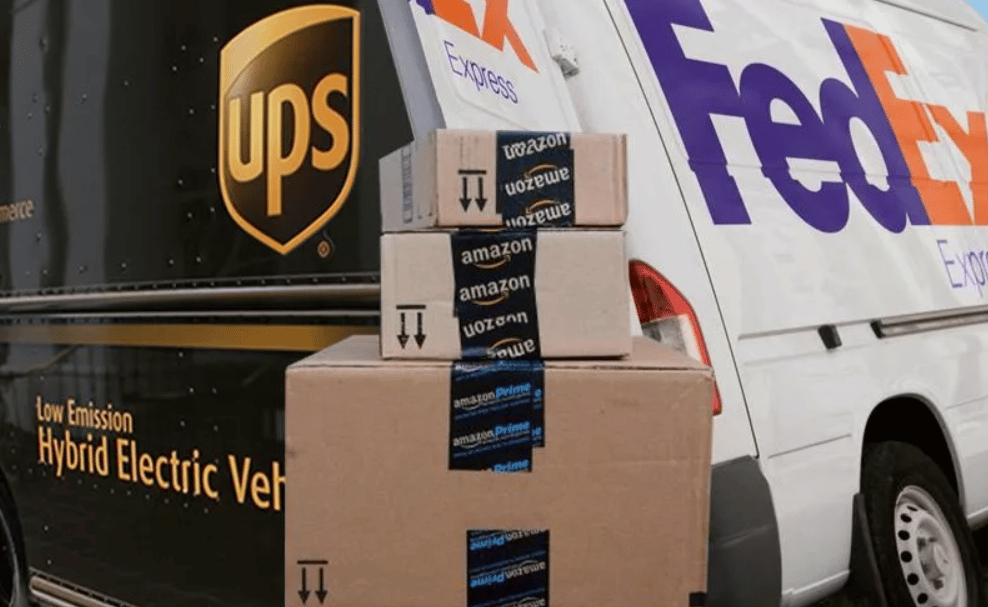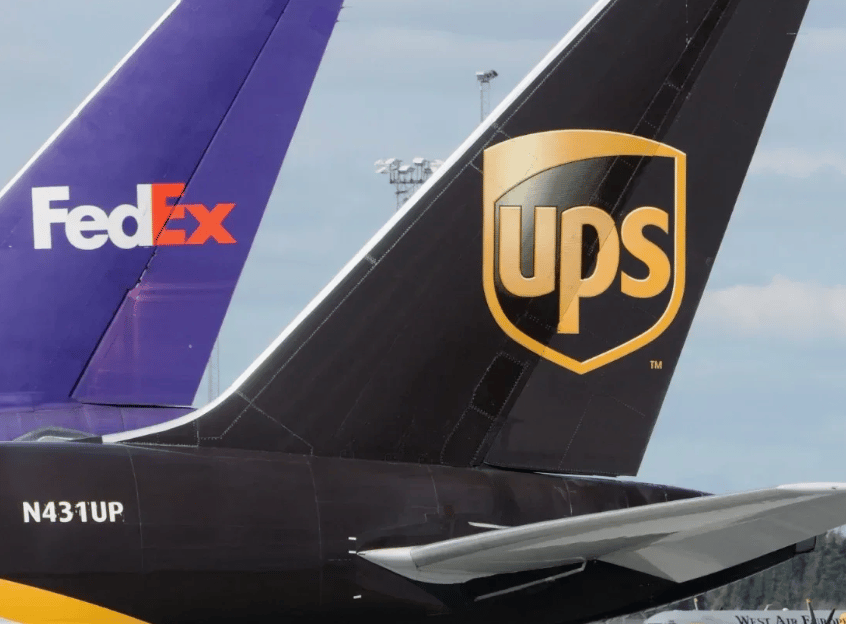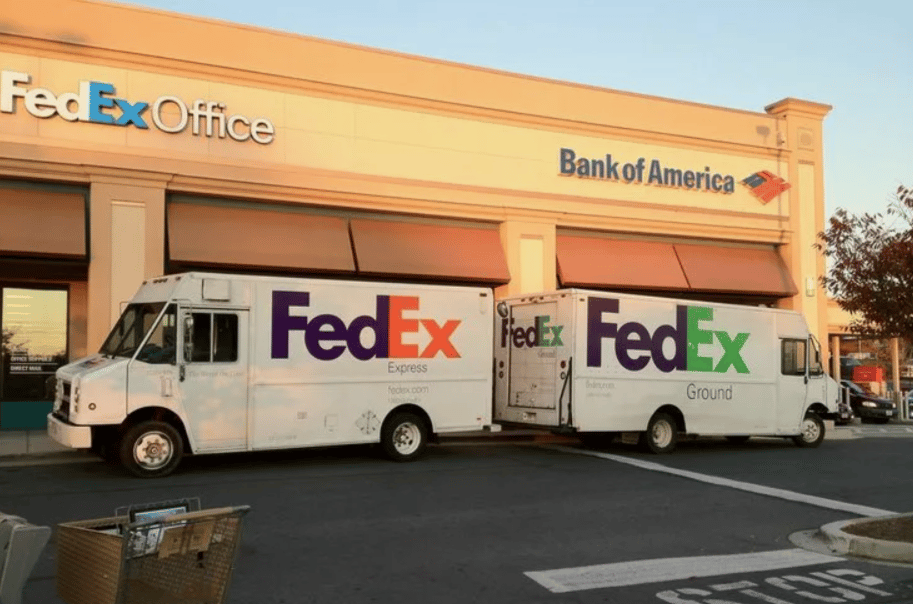Amazon Partners with FedEx for Large Package Deliveries: A Strategic Move Amidst UPS Challenges
In a significant development for the e-commerce and logistics sectors, Amazon $AMZN has entered into a partnership with FedEx $FDX to handle the delivery of larger packages. This collaboration comes just weeks after UPS $UPS announced it would cut 20,000 jobs and reduce its less profitable deliveries to Amazon. The shift signals a strategic pivot by Amazon to diversify its delivery partners and reduce its dependence on a single carrier.
The move to work with FedEx is seen as part of Amazon’s broader strategy to ensure its logistics capabilities are efficient, cost-effective, and adaptable to evolving market conditions. This article will explore the potential impacts of the partnership on the logistics industry, Amazon’s business model, and FedEx’s market position.
The Shift in Delivery Partnerships: A Closer Look at the Deal
Amazon’s decision to partner with FedEx comes on the heels of UPS pulling back from certain delivery contracts with Amazon, particularly those involving less profitable shipments. This has created a gap in Amazon's logistics strategy, one that FedEx is now poised to fill.
Key Points of the Amazon-FedEx Agreement
Large Package Deliveries: The agreement primarily focuses on large packages, which have become an increasing portion of Amazon's total shipments. This includes bulky items like furniture, appliances, and other heavy goods.
Cost Advantage Over UPS: According to internal documents reported by Business Insider, the deal with FedEx provides Amazon with a pricing advantage over its competitor, UPS, which has been scaling back its operations for Amazon.
Collaboration, Not Replacement: While FedEx will take over a portion of Amazon’s large parcel deliveries, the agreement does not mean Amazon will completely sever ties with UPS. Instead, FedEx will work alongside other carriers, including UPS and the United States Postal Service (USPS), as part of Amazon’s extensive “last-mile” delivery network.
Multiyear Contract: The partnership, signed in February, is expected to last several years, indicating a long-term strategy for Amazon in securing its delivery network with FedEx.
This deal with FedEx marks an evolution in Amazon’s logistics strategy, highlighting the company’s willingness to diversify its partnerships in order to maintain flexibility and cost control in its supply chain.

The Implications of the FedEx Partnership for Amazon and the Logistics Industry
The Amazon-FedEx collaboration has far-reaching implications for both companies and the broader logistics sector. With UPS scaling back its relationship with Amazon, FedEx stands to gain a substantial share of the delivery market, positioning itself as a key player in the e-commerce logistics space.
Impact on Amazon’s Business Model
Enhanced Control Over Logistics: By diversifying its delivery network, Amazon gains more control over its supply chain. This will allow the company to better manage its delivery timelines, optimize shipping routes, and ensure more efficient deliveries, which is crucial for maintaining customer satisfaction.
Cost Savings and Flexibility: The new agreement gives Amazon a pricing advantage, allowing it to leverage FedEx’s competitive rates. Additionally, this flexibility in choosing delivery partners enables Amazon to better align its costs with shifting demand and delivery volume.
Strengthened Last-Mile Delivery Network: Amazon’s existing “last-mile” delivery network, which relies on a combination of in-house logistics and third-party services, will benefit from the addition of FedEx’s capabilities. This expands Amazon's reach and allows for more effective service in both urban and suburban areas.
The Broader Implications for FedEx and the Logistics Industry
Strengthening FedEx’s Position: The partnership with Amazon allows FedEx to expand its reach into the lucrative e-commerce market, particularly in the large package segment. FedEx, already a dominant force in logistics, will now have an even larger share of Amazon’s business, helping to bolster its revenue streams.
Competitive Pressures on UPS: The move also places UPS in a challenging position. After scaling back its operations for Amazon, UPS now faces heightened competition from FedEx. The company’s decision to reduce its workforce and pull back from less profitable deliveries may further impact its market share in the e-commerce delivery space.
Shifting Dynamics in the Delivery Sector: As Amazon continues to diversify its delivery network, the logistics industry is undergoing a shift. With the rise of tech-driven delivery solutions and a growing focus on efficiency and cost savings, companies like FedEx and UPS are being forced to adapt to new market conditions or risk losing out on crucial e-commerce contracts.

The Future of Amazon’s Logistics Strategy
Looking forward, the Amazon-FedEx partnership may be just the beginning of a broader reshaping of Amazon’s delivery network. As e-commerce continues to grow and consumer expectations for fast and efficient shipping rise, Amazon will likely continue to refine its logistics operations to maintain a competitive edge.
Future Trends to Watch
Increased Automation and AI Integration: Amazon has already invested heavily in automation for its fulfillment centers and delivery systems. As it expands its partnership with FedEx, the company may look to incorporate more advanced technologies, such as autonomous vehicles and drones, to further streamline delivery operations.
Expansion of Delivery Options: As part of its commitment to offering customers more delivery choices, Amazon could expand its network of delivery partners even further. This may include additional agreements with regional carriers or even tech startups offering innovative delivery solutions.
Environmental Sustainability Efforts: As sustainability becomes a critical concern for both consumers and companies, Amazon will likely continue to focus on making its delivery network more eco-friendly. This could involve transitioning to electric delivery vehicles, optimizing delivery routes to reduce carbon emissions, and exploring carbon-neutral delivery options.
Conclusion: A Strategic Move for Amazon and FedEx
The partnership between Amazon and FedEx is a significant development in the ever-evolving logistics landscape. As Amazon diversifies its delivery network and optimizes its logistics operations, the deal with FedEx offers the company increased flexibility, cost savings, and greater control over its supply chain. For FedEx, the partnership strengthens its position in the e-commerce delivery market, allowing it to compete more effectively with UPS and other logistics providers.
As the logistics industry adapts to new challenges and opportunities, this partnership is likely to serve as a model for future collaborations between e-commerce giants and logistics providers. The ongoing evolution of delivery networks will continue to play a crucial role in shaping the future of global commerce.















Comments